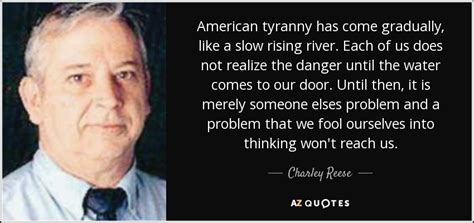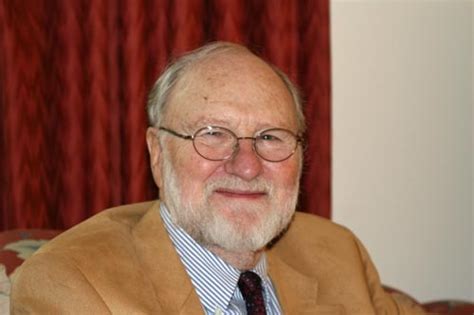A Quote by George Will
Republicans, supposed defenders of limited government, actually are enablers of an unlimited presidency. Their belief in strict construction of the Constitution evaporates, and they become, in behavior if not in thought, adherents of the woolly idea of a 'living Constitution.' They endorse, by their passivity, the idea that new threats justify ignoring the Framers' text and logic about shared responsibility for war-making.
Quote Topics
About
Actually
Become
Behavior
Belief
Constitution
Construction
Defenders
Enablers
Endorse
Evaporates
Framers
Government
Idea
Ignoring
Justify
Limited
Limited Government
Living
Logic
Making
New
Passivity
Presidency
Republicans
Responsibility
Shared
Shared Responsibility
Strict
Supposed
Text
Thought
Threats
Unlimited
War
Related Quotes
[T]he Constitution ought to be the standard of construction for the laws, and that wherever there is an evident opposition, the laws ought to give place to the Constitution. But this doctrine is not deducible from any circumstance peculiar to the plan of convention, but from the general theory of a limited Constitution.
The War between the States... produced the foundation for the kind of government we have today: consolidated and absolute, based on the unrestrained will of the majority, with force, threats, and intimidation being the order of the day. Today's federal government is considerably at odds with that envisioned by the framers of the Constitution. ... [The War] also laid to rest the great principle enunciated in the Declaration of Independence that 'Governments are instituted among Men, deriving their just powers from the consent of the governed'.
Are we reading the Constitution and pondering it? Are we aware of its principles? Are we abiding by these principles and teaching them to others? Could we defend the Constitution? Can we recognize when a law is constitutionally unsound? Do we know what the prophets have said about the Constitution and the threats to it?
The framers of the constitution employed words in their natural sense; and, where they are plain and clear, resort to collateral aids to interpretation is unnecessary, and cannot be indulged in to narrow or enlarge the text; but where there is ambiguity or doubt, or where two views may well be entertained, contemporaneous and subsequent practical construction is entitled to the greatest weight.
On every question of construction (of the Constitution) let us carry ourselves back to the time when the Constitution was adopted, recollect the spirit of the debates, and instead of trying what meaning may be squeezed out of the text, or invented against it, conform to the probable one in which it was passed.
Those who proposed the Constitution knew, and those who ratified the Constitution also knew that this is...a limited government tied down to specified powers....It was never supposed or suspected that the old Congress could give away the money of the states to encourage agriculture or for any other purpose they pleased.
In explaining the Constitution, James Madison, the acknowledged father of the Constitution, wrote in Federalist Paper 45: 'The powers delegated by the proposed Constitution to the Federal government are few and defined. Those which are to remain in the State governments are numerous and indefinite. The former will be exercised principally on external objects, as war, peach, negotiation, and foreign commerce.' Has the Constitution been amended to permit Congress to tax, spend and regulate as it pleases or have Americans said, 'To hell with the Constitution'?
Under the constitution, there was never meant to be a federal police force. Even an FBI limited only to investigations was not accepted until this century. Yet today, fueled by the federal government's misdirected war on drugs, radical environmentalism, and the aggressive behavior of the nanny state, we have witnessed the massive buildup of a virtual army of armed regulators prowling the States where they have no legal authority. The sacrifice of individual responsibility and the concept of local government by the majority of American citizens has permitted the army of bureaucrats to thrive.
It is difficult to remove by logic an idea not placed there by logic in the first place. By nature, we are emotional creatures. Often we live and react based on feelings, not logic. Feelings are wonderful, but when we become tied to a particular thought or belief we tend to ignore the fact that change might be necessary.
The trouble with the theory [of limited and divided government] is that government is not a machine, but a living thing. This is where the living and breathing constitution comes from. It is modified by its environment, necessitated by its tasks, shaped to its functions by the sheer pressure of life.
































